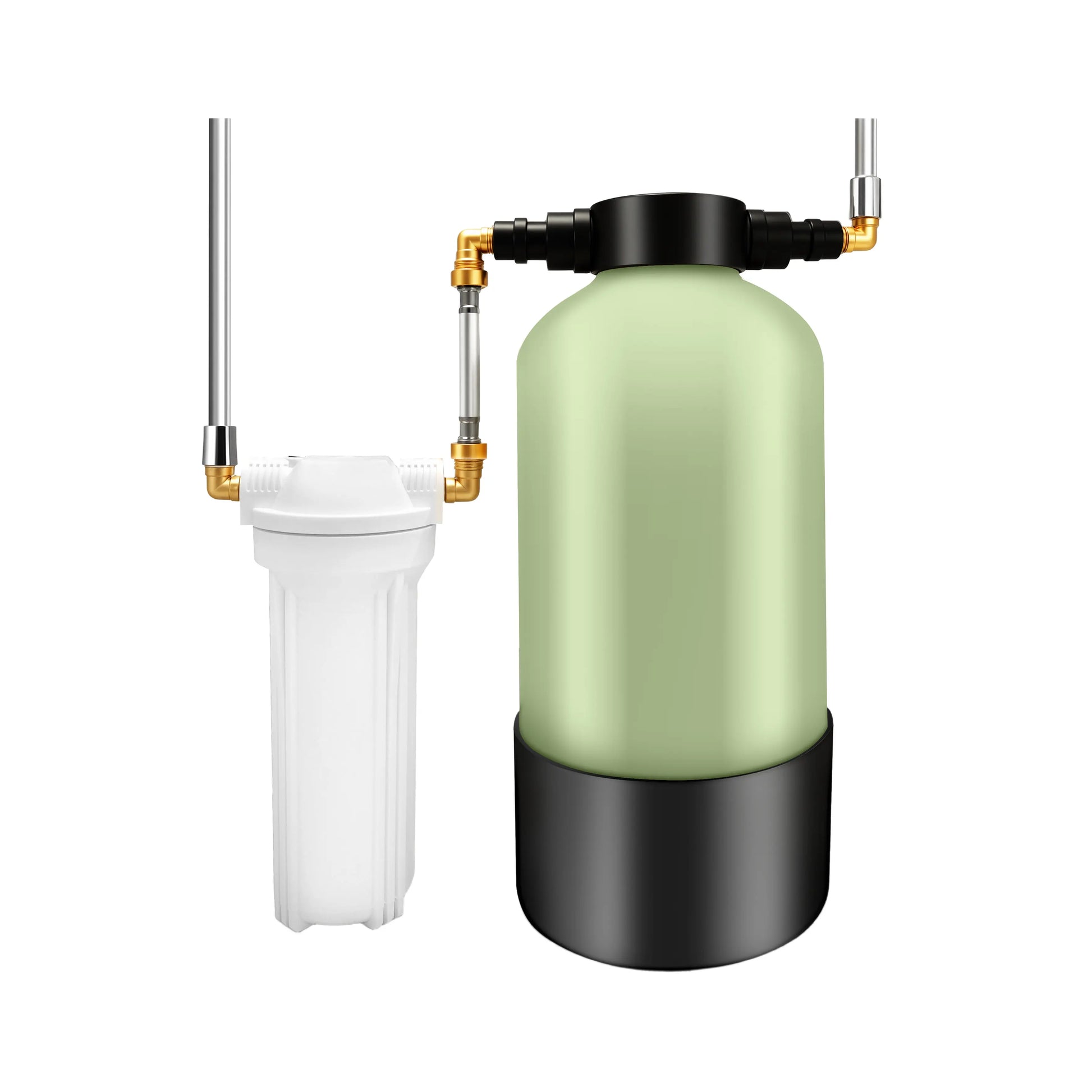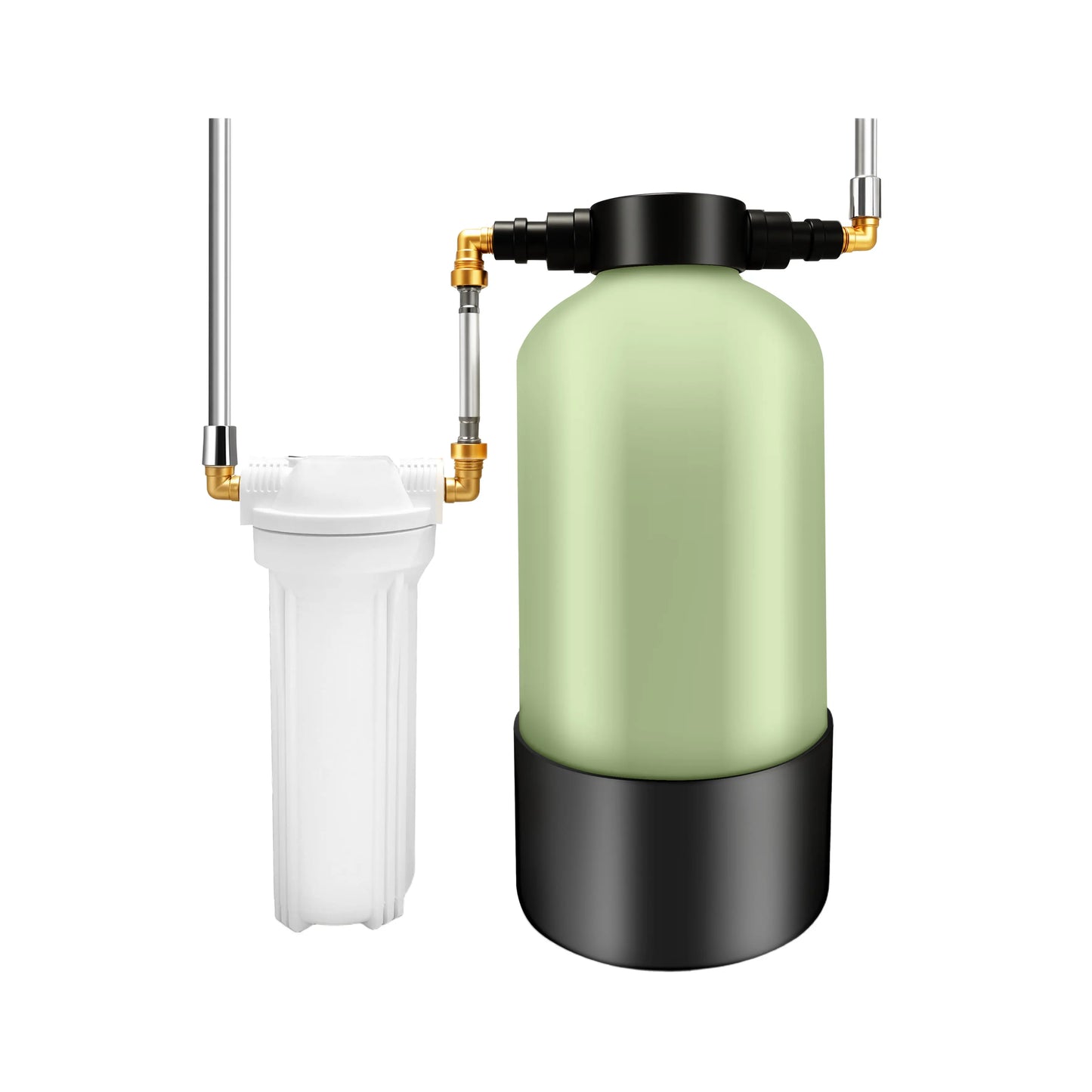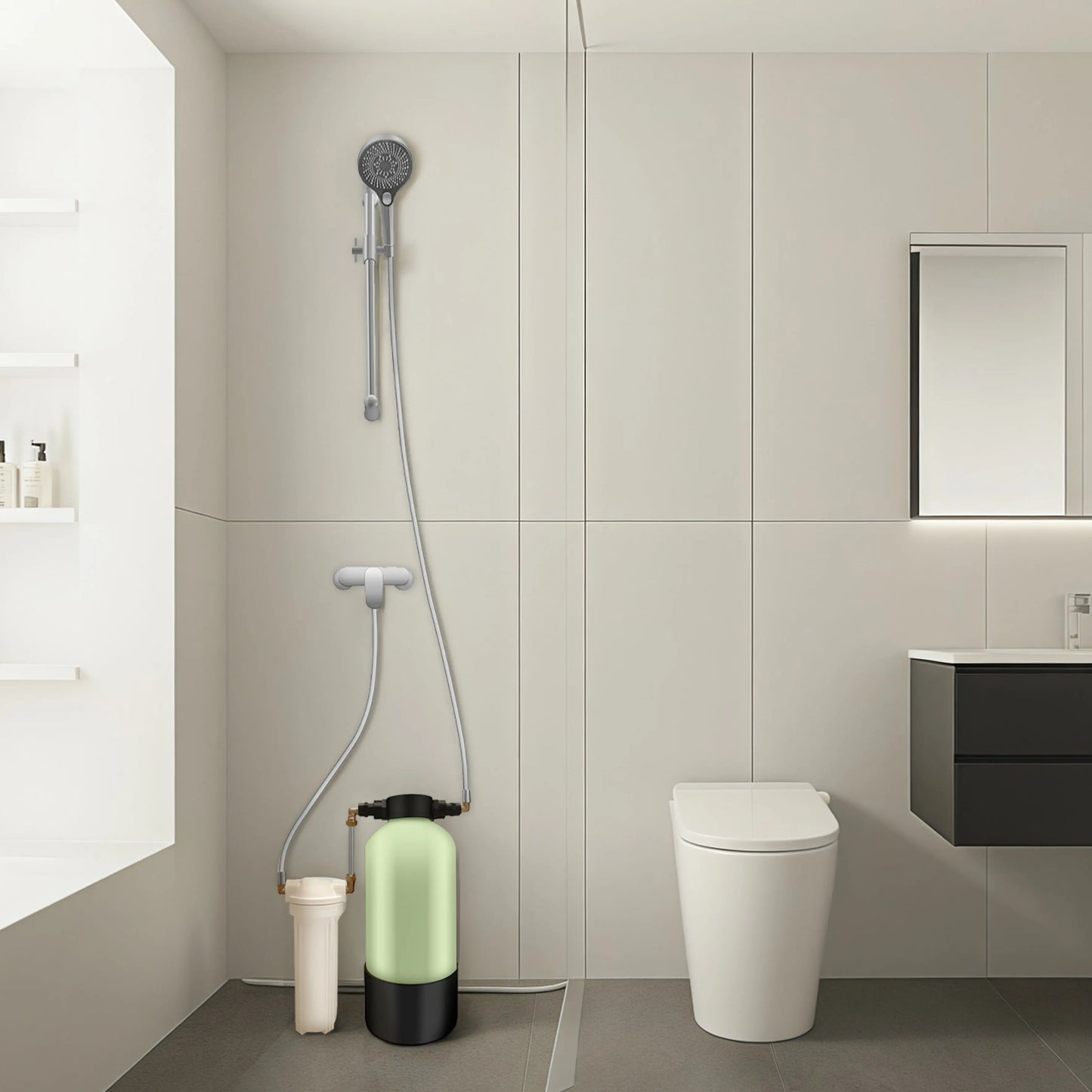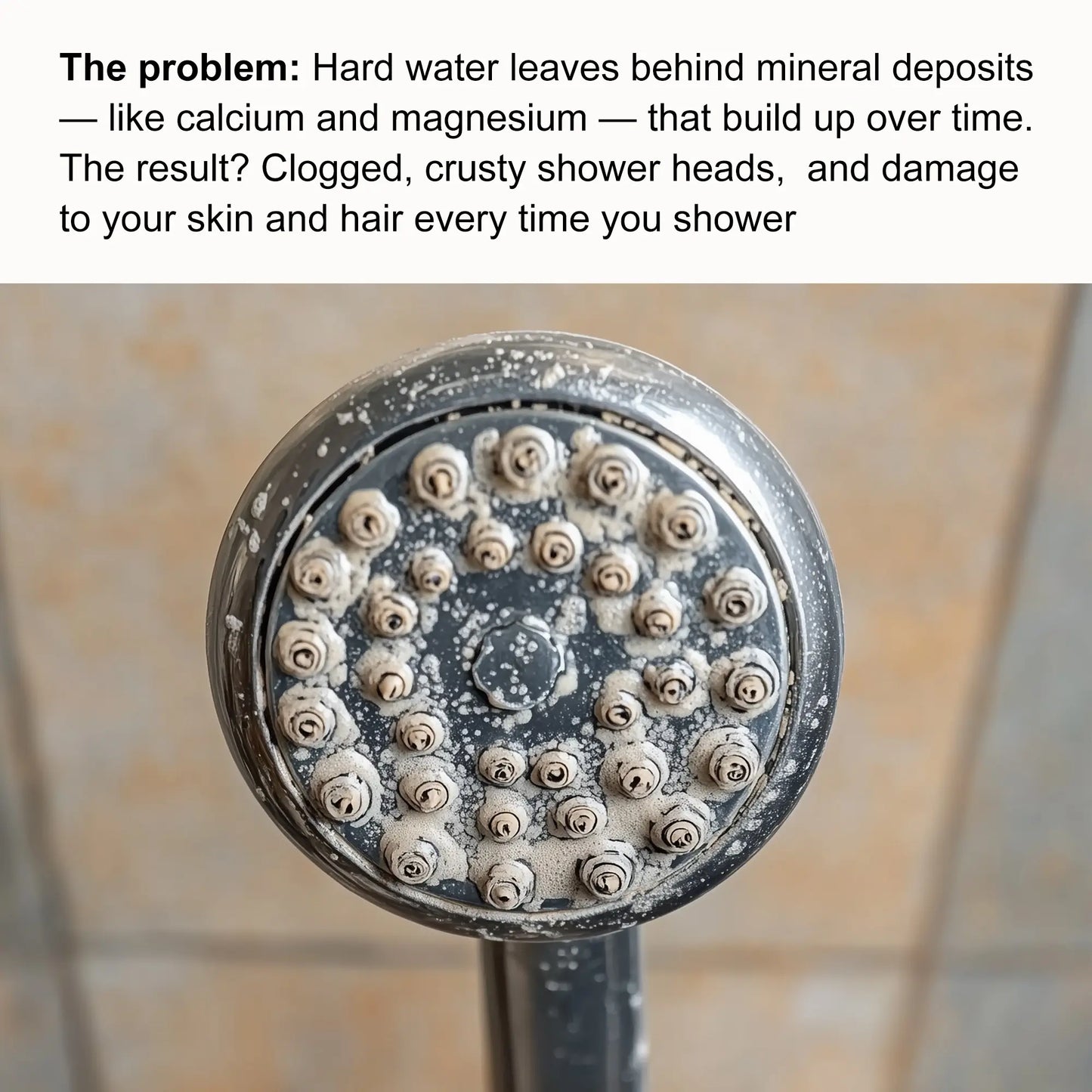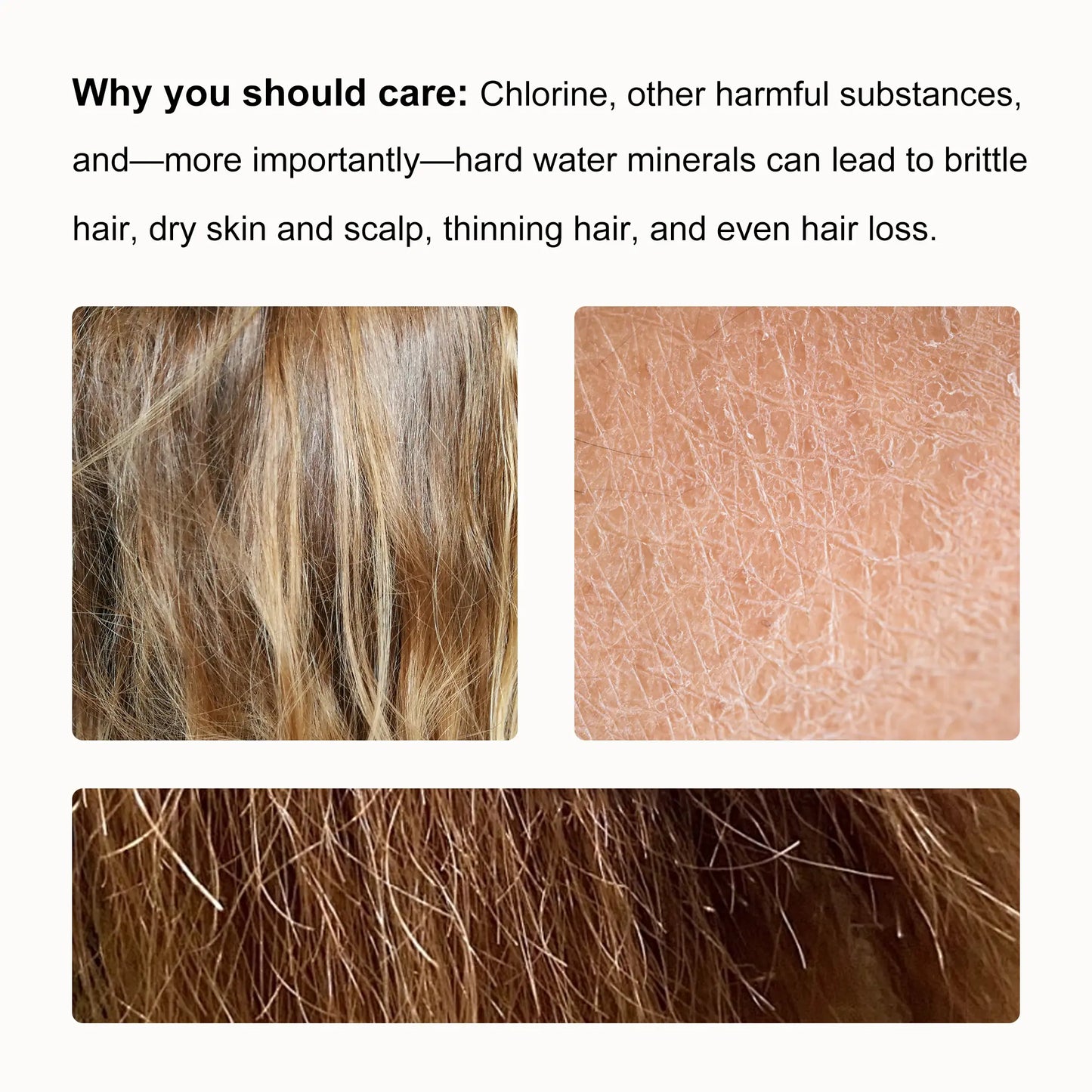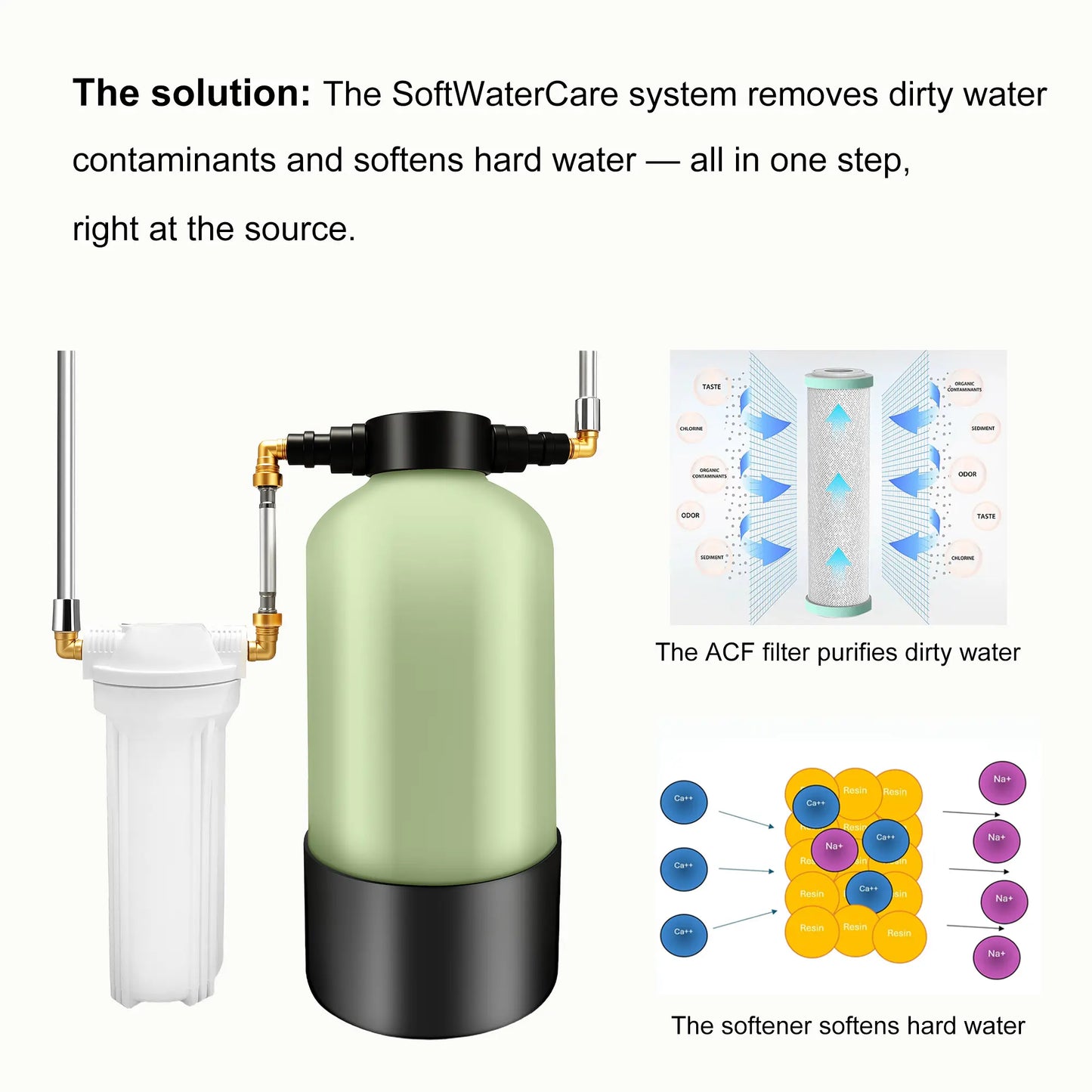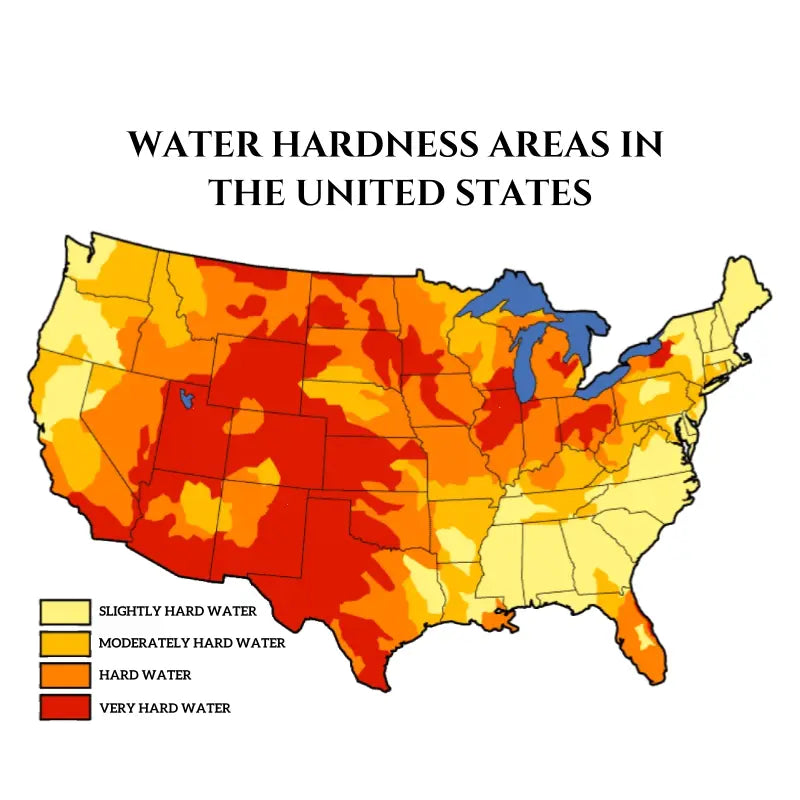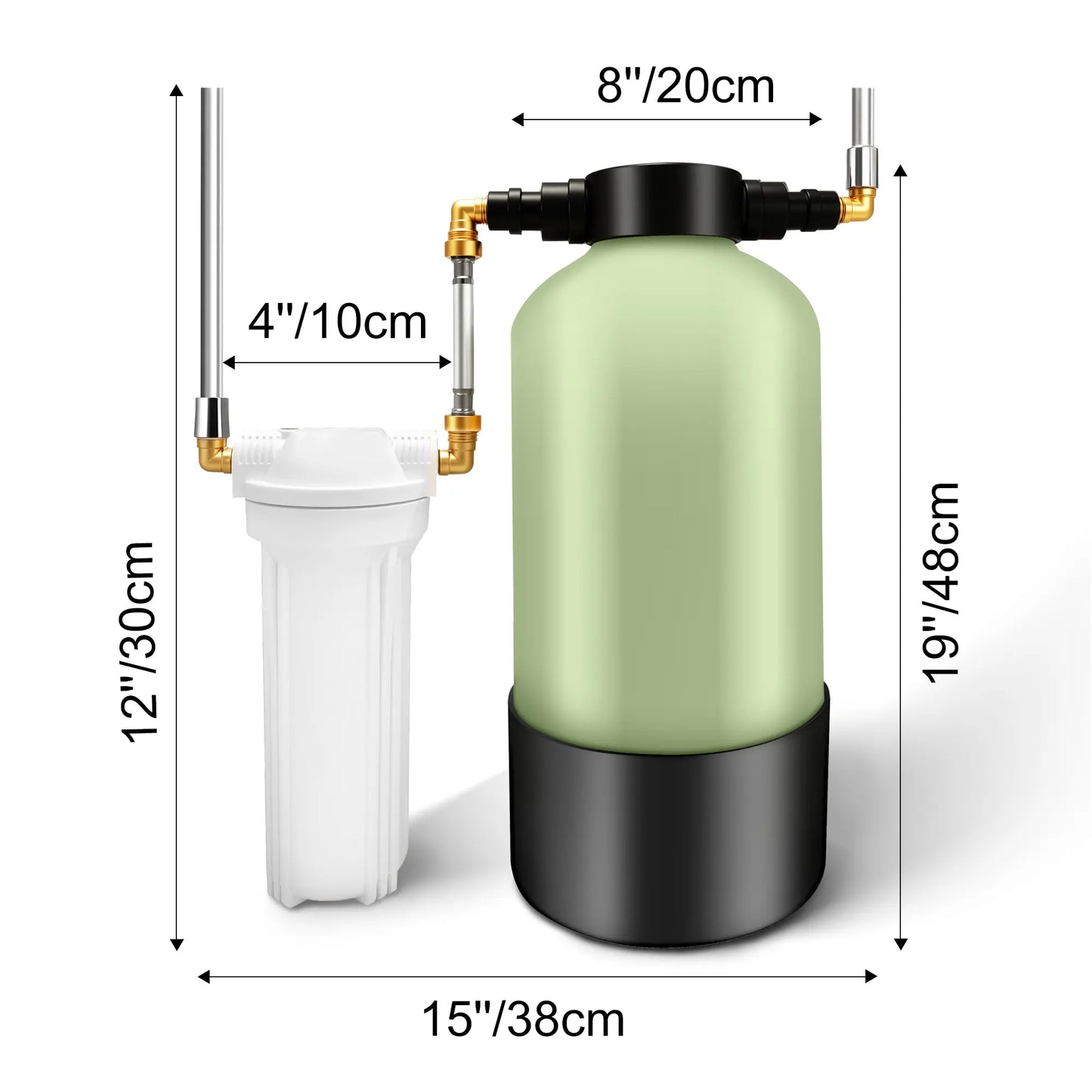What is hard water?

In the natural water cycle, water picks up minerals from rocks and soil, including hard minerals like calcium and magnesium. When the concentration of these minerals is high, the water is known as hard water; when the concentration is low, it’s called soft water.
U.S. Water Hardness Map
85% of American households use hard water. Water hardness is measured in grains per gallon (GPG), with one grain equaling 0.002 ounces of dissolved calcium carbonate in one gallon of water. The map below shows the variation in water hardness across the country.
How can I tell if I have hard water?
-
Soap Scum: Hard water often leaves a white or gray residue on sinks, showers, and dishes. The minerals in hard water react with soap, reducing its effectiveness and causing scum.
-
Lack of Lather: You might have hard water if your shampoo or soap doesn’t lather well.
-
Dry Skin and Hair: After washing, you might notice that your skin feels dry, rough, and tangled. This could be a result of mineral buildup from hard water.

How to fix hard water?
Installing a whole-house water softener is a popular and effective solution. These systems use ion exchange to replace calcium and magnesium ions with sodium ions, eliminating water hardness. However, whole-house softeners are expensive and require professional installation.
A
shower water softener is simpler if you only want to fix hard water in your shower. It works on the same principle as a whole-house softener but is smaller, more affordable, and easy to install independently. Our shower water softener tackles hard water and removes chlorine and other substances that can damage your hair and skin, keeping them healthy and protected.




